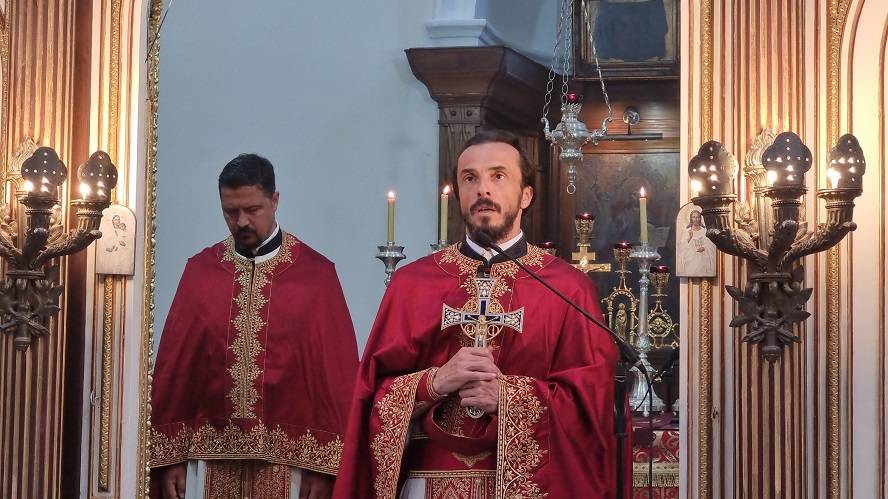
A. OLIVER SUBOTIĆ: THE SPIRITUAL EYE, THE CENTER OF THE SOUL
Archpriest Oliver Subotić addressed the faithful today at the Holy Liturgy in the Church of St. Nicholas in Kotor's Old Town, on the feast day of the Holy Martyrs and Silverless Cosmas and Damian.
"If your eye is light, your body will be light" says the Lord today in this Holy Gospel and reminds us that our basic task is to examine that spiritual eye, which is within us, which every person possesses, and which is actually the mind the eye, that eye which is the center of the soul, which is different from our bodily sight.
Because a person can have exceptional physical sight, and yet be spiritually blind, and vice versa, he can be visually impaired and even blind, and have an exceptionally developed spiritual eye. The eye with which man penetrates into the depths of Divine knowledge.
The best teachers in this field are the saints who are pleasing to God, people with an enlightened mind, people with a healthy eye, a bright eye, who have done their best to purify their spiritual vision and through the purity of their spiritual vision, give and pass on knowledge to us, just as we do. let's do it ourselves.
And who better to learn it than the holy apostles, luminaries of our faith, those who are at the foundations of our Church.
A few days ago we celebrated the feast of the Holy First Supreme Apostles Peter and Paul. Through their example, we can see how that spiritual eye is cleansed. What are the prerequisites for us to gain pure spiritual vision.
Let's start with the apostle Peter. In the first place it is faith. He was praised by the Lord for his faith. When the Lord asks "who do you say I am", he first steps forward and says "You are the Christ, the Son of the living God". He is praised for that and the Lord says "I will build my Church on the rock of that faith".
Repentance, let's remember that he denied Christ three times due to his weakness, but repented bitterly, so Peter's cry is an example of how a person should offer his repentance to God.
And finally, it is understood as a bond of virtue - love. The Lord said to him three times, "Peter, do you love me", he confirms it.
Through those three virtues, the Apostle Peter confirms to us what we need to have in order to achieve the health of that mental vision and to reach the touch of the knowledge of God," says Fr. Oliver.
It is the same, he continues, with the apostle Paul, who was a man of deep faith, and even when he persecuted Christians, he did so with the faith to serve his god, the god of his fathers.
"He had a zeal that was not reasonable and then the Lord revealed himself to him knowing his good intentions and from that moment the apostle Paul became Saul, he became the "apostle of the Gentiles", a unique personality in general in the history of the world, and not only in the history of the Church.
"No religion can show any example that would be even remotely similar to the apostle Paul, the greatest persecutor of a religion and then the greatest supporter of that same religion," says Fr. Oliver.
He also highlights the prayer of the apostle Paul, combined with repentance.
"This is often overlooked in the case of the apostle Paul, for some reason, when talking about him. He, since he was miraculously called by the Lord, what does he say in his epistles? He says "I didn't go to ask about the blood or the body, but I went away to the Arabian desert", for a couple of years where he stayed in prayer, in fasting, in contemplation of God, because that is a necessary prerequisite for cleansing the mind's eye.
And, as we said with the Apostle Peter, love as a bond of virtue, because the Apostle Paul tells us in that Hymn of Love "if I have faith to move even higher, but I don't have love, I am nothing". So that is the basis. Faith, repentance, prayer, love (as a virtuous life whose peak is love).
When a person reaches that level, when he clears his mind's eye, then he reaches a state of peace of mind," said Fr. Oliver, reminding us that when the Lord tells us not to worry about tomorrow, He does not mean that we do nothing to plan for some of our future needs.
He explains that the message is not to think about how and what will be.
"Leave it to God how it will go, let us do what is up to us and that's it." It is a life in simplicity, a life in the moment in which a person finds himself and then it goes as it should. And in order for man to reach that, he must reach this level of closeness with God, living in the grace of God that relieves him. What the apostle Paul says, "I no longer live, but Christ lives in me", and that is actually the peak of that state after which a person is absolutely relieved of all worldly cares.
And not only that. He reaches the point where he is absolutely ready to testify that he serves only God and not Mammon, not this world and what would be idolatry. "Only a man who has loved God with all his heart, soul and mind can do it exclusively," said Fr. Oliver.
He called us to reach that state by "loving the Lord our God with all our heart, with all our mind, with all our strength, with all our soul and our neighbor as ourselves, and then we will truly know that our mind's eye is healthy and that we are true followers of Christ the Lord".
Sermon by Fr. Oliver You can watch here.
Photo and video – Andrea Ševaljević
PHOTOS
RELATED ARTICLES
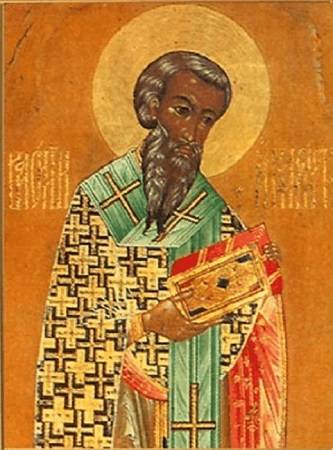
Calendar for May 9 His Homilist Basil of Amasia
Licinius, the son-in-law of Emperor Constantine, whose sister he had married,...
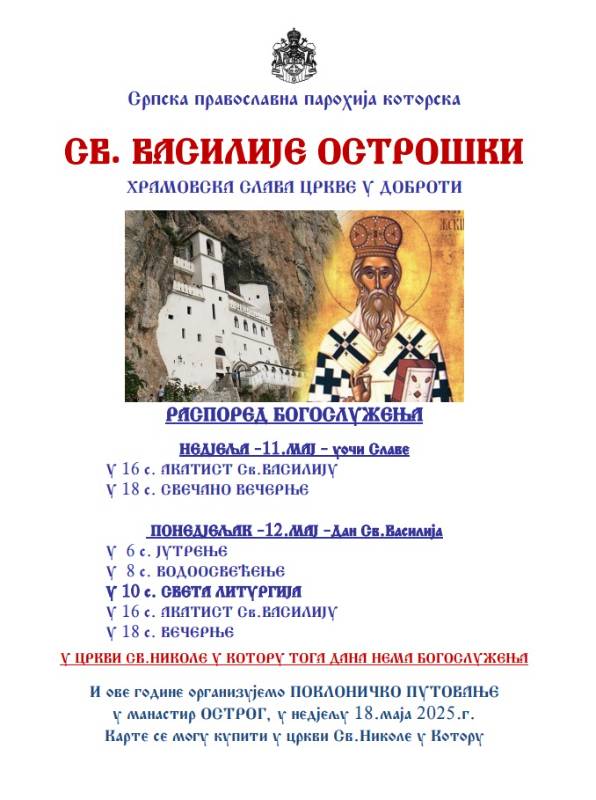
WORSHIPS ON THE OCCASION OF ST. VASILIJE OSTROŠKI
SERBIAN ORTHODOX PARISH OF KOTOR ANNOUNCES WORSHIPS ON THE OCCASION OF ST....

St. Mark's Day procession in Podgorica
On the occasion of the celebration of the city of Podgorica, the...


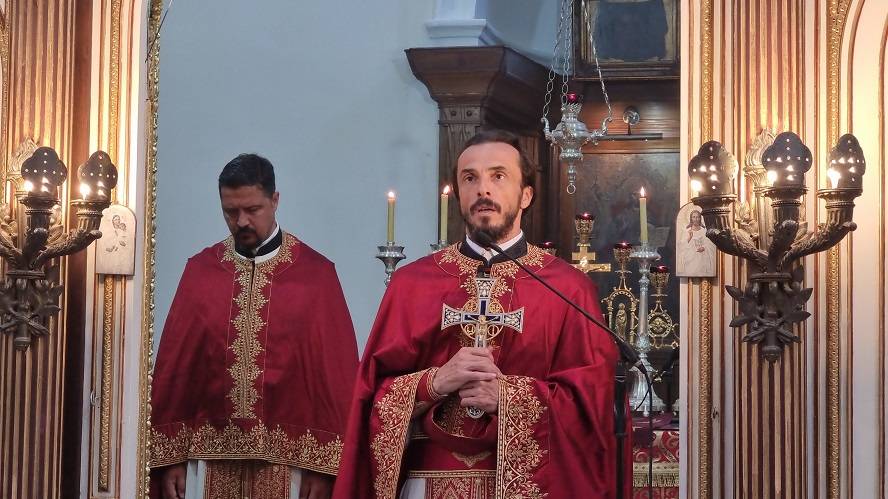

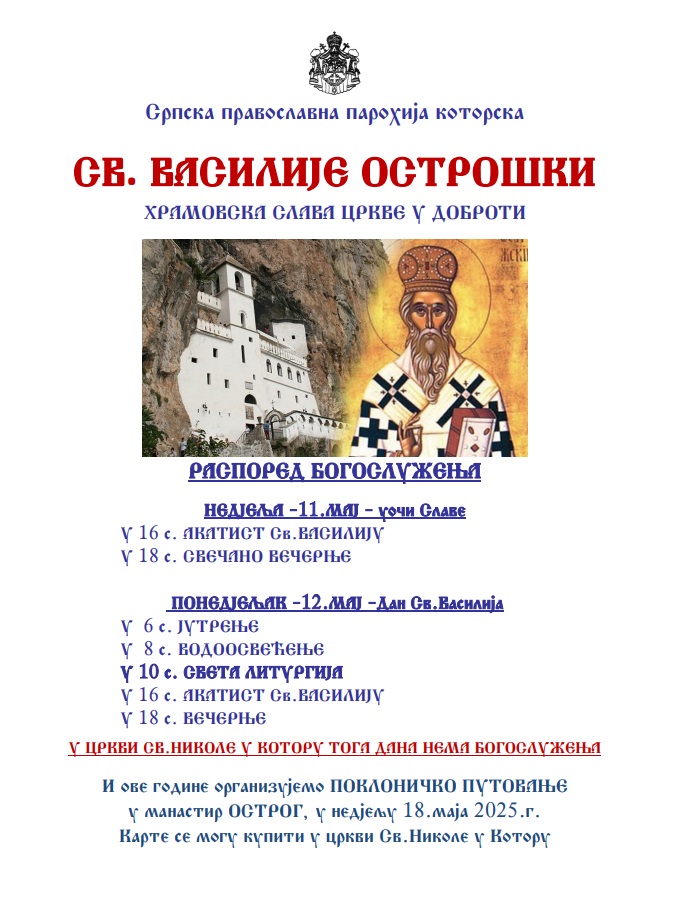
.png)